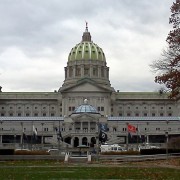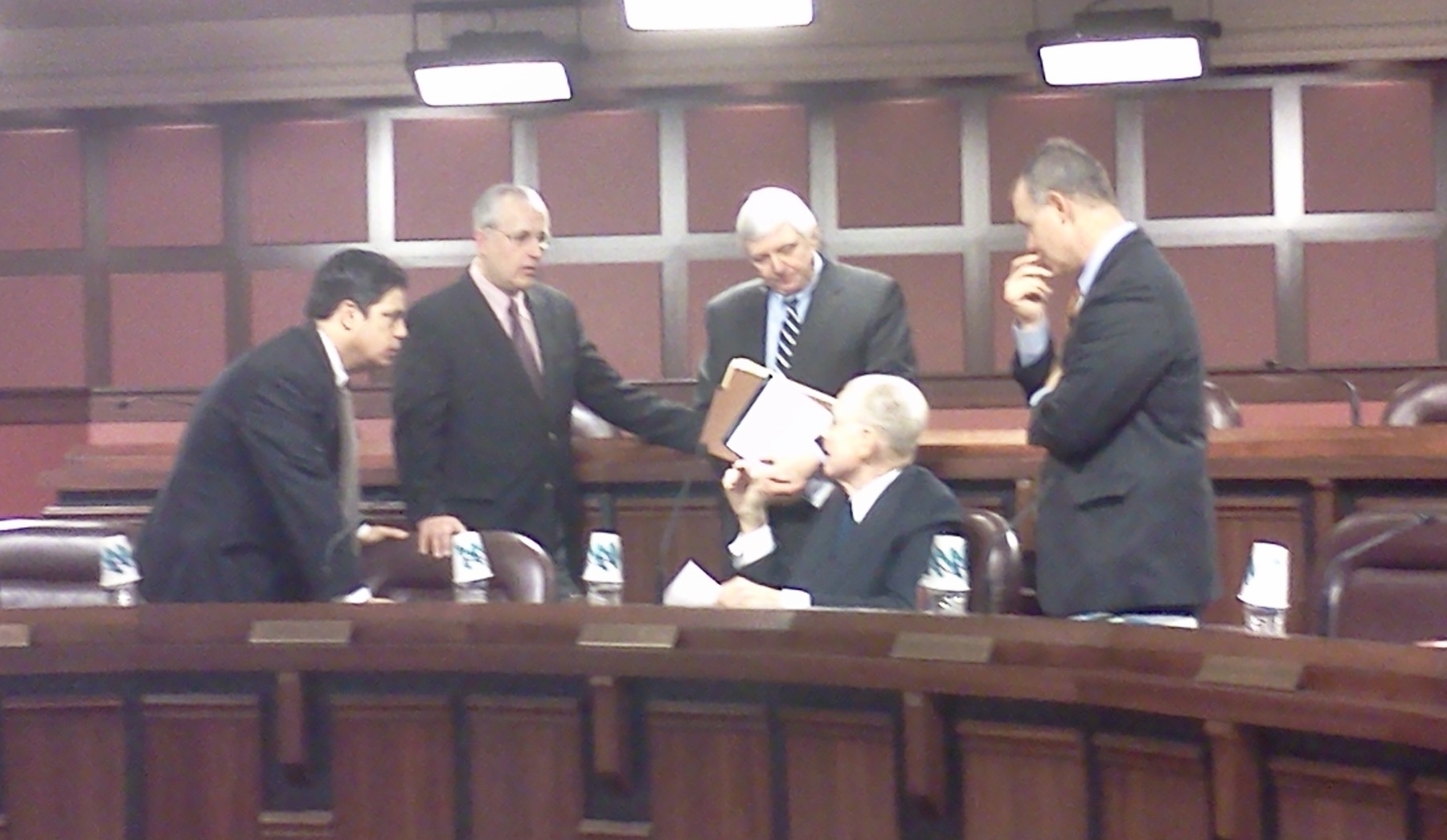PA High Court Deems Final Redistricting Plan Constitutional
The Pennsylvania Supreme Court has unanimously ruled to dismiss the appeals filed by critics of the Legislative Reapportionment Commission’s 2012 Revised Final Plan. In his opinion Chief Justice Ronald Castille suggested the question of municipal splits was “close,” but writes that the appellants did not prove the plan is contrary to law.
The state’s high court had previously rejected a 2011 version of the redistricting plan.
Four justices joined with Castille on the latest opinion, and Justice Saylor Thomas Saylor wrote his own concurring opinion. Recently convicted, resigned & sentenced Justice Joan Orie Melvin did not participate.
“I was happy that the decision was unanimous,” Senate Majority Leader Dominic Pileggi (R-Delaware) told a group of reporters gathered in his capitol offices. “There was not a single dissenting opinion and it’s a very diverse court.”
Senate Democrats were among the appellants and Minority Leader Jay Costa (D-Allegheny) released a statement calling today’s decision disappointing. “However, Senate Democrats recognize that the court has now ruled and that it is time to move on in crafting policies that serve all citizens of Pennsylvania,” Costa’s statement concludes.
The new legislative boundaries will be in effect for next year’s legislative elections.









